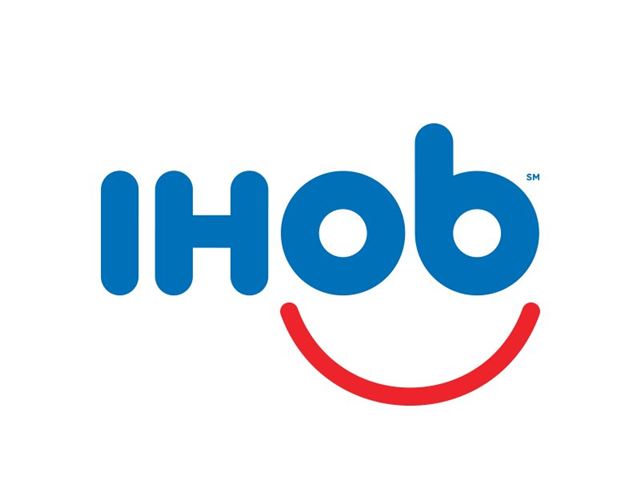What does a business do when it competes in a mature category and is battling for new customers? You shake things up. To that end, give IHOP credit for its bold campaign to introduce new hamburger items to its menu. It was no ordinary product rollout; IHOP has temporarily re-branded as IHOb, or International House of Burgers. After teasing the IHOb name last week, the company unveiled the burger initiative yesterday.
The announcement was met with surprise (many people thought the “b” was for “breakfast”) and anger that IHOP was turning its back on the promise of being a breakfast brand. Don’t worry, pancakes are not going to be eliminated from IHOP’s, err IHOb’s, menu. The name change is nothing more than a publicity tactic to draw attention to the new products. The tactic worked from a publicity standpoint, but will it help or harm the brand long term?
The Case for IHOb
Casual dining is a category in trouble and has been since the recession of 2008. In a mature product category, a prime growth route is to attract competitors’ customers. Growth becomes a zero-sum game rather than an organic process. A textbook marketing response at this stage of the product life cycle is to pursue competitors’ customers. The burger initiative and IHOb campaign is an attempt to attract diners who may not have viewed IHOP as an option.
A second textbook marketing strategy that played into IHOP’s decision is pursuing growth through new products. Business growth can be reduced to two options: sell to more customers or sell more products. Expanding the non-breakfast menu is a way for the brand to broaden its appeal and in turn, bring in new customers… at least in theory.
A business operating in the maturity stage of the product life cycle is in a precarious position. Maintaining status quo could point the bus in the direction of decline. Taking chances on new products to bring in customers may not work, but the possibility of success beats the alternative.
Is the Book Wrong?
Textbook marketing led IHOP to the IHOb campaign. Many marketing experts would argue the book is wrong, or at least not applicable, in this case. Brands are rich with meaning, embedded through customer experience and cumulative marketing exposure. The IHOP brand is synonymous with breakfast. When one thinks of IHOP, chances are the first association that comes to mind is “pancakes.” By extension, subsequent brand associations probably have something to do with breakfast. Associations about hamburgers, chicken, or any other entree probably are less likely to be elicited.
For better or worse, IHOP is associated with breakfast. Rather than trying to break free from the “breakfast box,” IHOP should double down on that association. Instead of attempting to widen its appeal by expanding the menu, IHOP should be on a quest to make breakfast more exciting and desirable. Add variety to the breakfast menu, improve product quality or taste, enhance the dining experience, but whatever you do, carry out the brand promise of a great breakfast.
IHOP has already sought to avoid being limited by a breakfast association. The change from its full name, International House of Pancakes, to IHOP was an effort to not emphasize the signature breakfast item. While you can take pancakes out of the brand name, you cannot eliminate it from brand positioning and promise. Instead of pancakes and breakfast in general being a growth limitation, IHOP is one of the few brands in the restaurant industry that could position itself as the ultimate breakfast experience.
Will It Work?
Sales performance over time will be the ultimate metric to evaluate the IHOP-IHOb campaign. Exposure is beneficial for a brand, particularly in today’s crowded and noisy marketplace. According to a USA Today story, IHOP’s brand mentions online since early June were about 15 times greater than a comparable time period in May. In the battle for the customer’s mind, being noticed is better than not being noticed.
IHOP is risking damage to brand equity in the IHOb campaign. Many consumers will be skeptical that IHOP can deliver on a quality hamburger. After all, it is a breakfast place, not a hamburger restaurant, at least that is what our brand associations tell us. Other brands are perceived as go-to places for a burger. Even if IHOP succeeds in getting customers to try its new burgers, a less than satisfactory experience with the product could be a threat to IHOP. Negative reaction to IHOP burgers could affect perceptions about IHOP in general.
IHOP should remain true to its brand roots and invest in being the best breakfast restaurant around. The brand’s parent company, Dine Brands Global, is diversified in that it also owns Applebee’s. It is pointless to drag IHOP into a bigger arena of competitors. Leverage the existing brand positioning and be great at breakfast.

